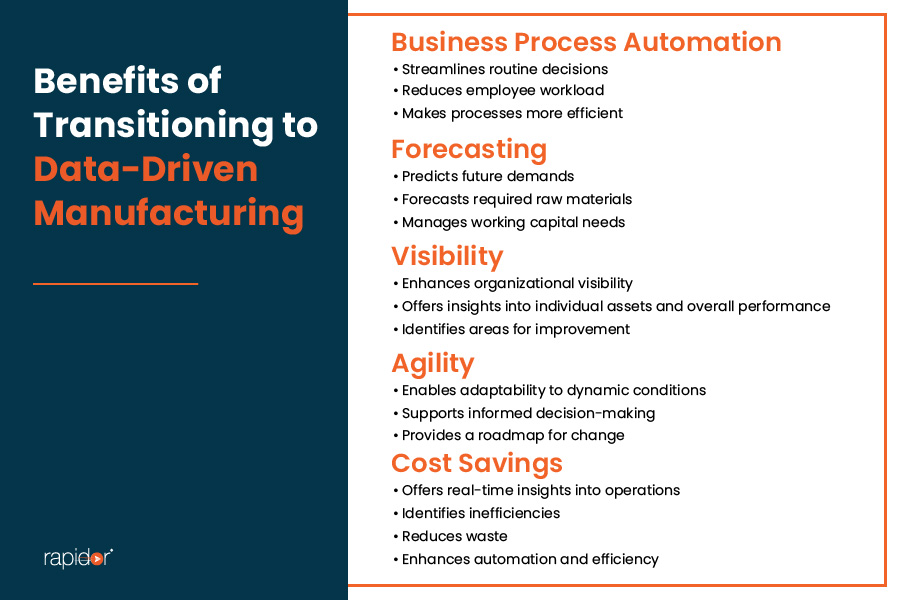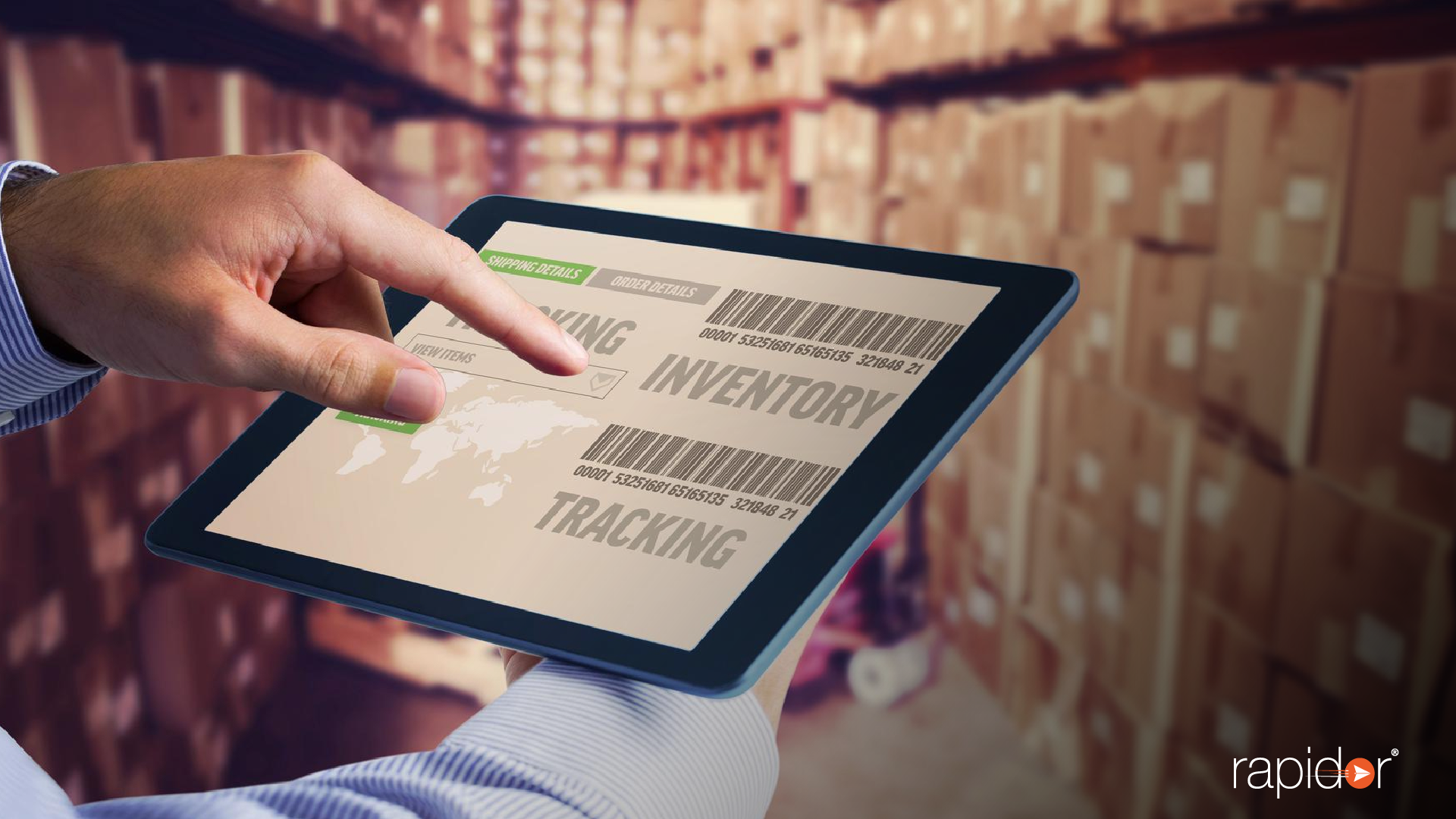The secret to a successful business often boils down to the choices its leaders make. But what happens when those decisions don’t quite hit the mark? To understand how smart decisions are made, we need to comprehend how decisions go awry.
In business, change is the only constant, and nowhere is this more evident than in manufacturing.
Enter Industry 4.0, where business leaders are always on the move, making decisions left and right. At the heart of this process lies an essential paradox: while the world hurtles forward into the digital age and data-driven manufacturing, a significant number of Small and Medium-sized Enterprises (SMEs) continue to anchor themselves to the past, relying heavily on gut instincts and age-old practices when making vital business decisions. While experience is invaluable, it’s no match for the precision and insights that data can provide.
But, for such manufacturing businesses, embracing a data-driven future is easier said than done.
Imagine running your factory with the wisdom passed down through generations, combined with the gut feelings of experienced hands. It’s comfortable, tried, and tested, but it’s a path fraught with inefficiencies, missed opportunities, and a lack of vision into potential challenges and opportunities.
And that’s why, in this blog, we have decided to delve into this pivotal shift within the manufacturing landscape, where data is the new currency.
But first, let us start with the basics, and then we will move towards discussing the benefits, challenges, and strategies for data-driven manufacturing.
What is Data-Driven Decision Making?
When it comes to making smart decisions in your business, it’s all about relying on data. We call this approach Data-Driven Decision Making, or DDDM for short.
Harvard Business Review defines DDDM as utilising various data points to inform organisational strategies, decisions, and actions for optimal results. In other words, DDDM relies on metrics — not gut feelings.
Data-driven decision making hinges on the use of reliable data and the determination to make choices that might not immediately seem intuitive. Decisions made in this manner are easily verifiable because they are grounded in concrete data and linked to predictions about the results they will produce.
Why Does Data Matter in Any Business?
While sometimes it’s okay to follow your instincts, most business choices should rely on solid data, facts, and insights that connect with your goals. These metrics provide a sturdy foundation for your accounts, management reports, and operations, helping your business thrive and adapt in a constantly changing market.
Well, imagine a product manager who has a great idea for a new product based on some customer chats. It sounds good, right? But when they dig into the data about customer buying habits, it turns out the demand might not be enough to make it a success.
In fact, a report by Finances Online says that 57% of companies believe that effective decision-making is the most prominent benefit of data analytics.
But being data-driven is more than having fancy technology to collect and analyse data. It’s about turning those metrics into useful insights and plans. In other words, it’s about making your data work for you to help your business grow and adapt in a constantly changing market.
What is Data-Driven Manufacturing?
The contemporary technological landscape provides valuable tools that empower both individuals and machinery to gather and process essential data for achieving superior outcomes.
Data-driven manufacturing is a strategic approach to production that places a strong emphasis on utilising concrete facts and a well-defined set of key performance indicators (KPIs) to steer decision-making.
This stands in contrast to making decisions based on guesses, anecdotal evidence, or mere intuition.
It involves harnessing data from various sources, including shop floor equipment, operators, and the supply chain, to facilitate improved decision-making geared towards cost reduction and heightened operational efficiency.
Advances in technology have expanded manufacturers’ capabilities to gather and process data from their operations, resulting in a proliferation of solutions that can extract real-time insights from manufacturing data. However, not all analytics are created equal.
Effectively leveraging data in manufacturing requires the initial step of collecting accurate information that can be efficiently processed and presented in a user-friendly format.
For instance, manually recording machine performance data on paper involves a significant time commitment and is prone to human errors. In contrast, collecting data directly from machines through business management software produces a highly accurate and impartial stream of data.
Both approaches can be labelled as “data-driven manufacturing,” but the latter is markedly superior and ultimately leads to more informed and effective decision-making processes.
What are the Benefits of Transitioning to Data-Driven Manufacturing?

The manufacturing landscape is evolving unprecedentedly, and with it, the requirements for success. Intuition and traditional decision-making, though valuable in their own right, can no longer keep pace with the demands of a highly competitive market.
To thrive, manufacturers are recognizing the need to pivot toward data-driven manufacturing. Why?
Because data provides:
- A clear, objective, and evidence-based foundation for making crucial choices
- Ultimately leading to more efficient operations
- Improved quality
- Cost savings
As per insights from Forrester, companies that prioritise data-driven approaches not only experience a 30% annual growth but also demonstrate profitability and the ability to attract and retain new customers.
To understand this properly, let’s check out the benefits of data-driven manufacturing:
1. Business Process Automation
Automation is at the core of data-driven manufacturing. By harnessing the right kind of data and business process automation technology, routine decisions in plant operations can be streamlined and automated.
This not only reduces the burden on employees but also ensures that human input is reserved for critical decisions where it’s most needed. As factories become smarter through automation in manufacturing, the reliance on accurate data grows, making processes more efficient.
2. Forecasting
One of the key advantages of data is its ability to enable forecasting. With a wealth of data at their disposal, manufacturers can employ machine learning algorithms to reliably predict future demands, required raw materials, and working capital needs. Accurate predictions are crucial in data-driven manufacturing, offering insights into managing resources more effectively.
3. Visibility
Data-driven manufacturing enhances visibility across the organisation, allowing leaders on the shop floor and corporate office to gain deeper insights into performance. This includes not only individual asset performance but also the overall operations, aiding in identifying areas for improvement, such as shifts with poor performance or recurring machine downtime through process optimisation.
4. Agility
Rapid changes mark the business landscape, and manufacturers must be agile to remain competitive. Data-driven forecasting plays a significant role in this agility. High-quality data, well-visualised, helps organisations adapt to dynamic conditions, providing a roadmap for informed decision-making.
5. Cost Savings
Data offers continuous, real-time insights into plant operations, helping manufacturers identify inefficiencies and areas for improvement. By reducing waste and enhancing automation and efficiency, data-driven manufacturing significantly cut the cost of plant operations.
Data is just one piece of the puzzle.
While data-driven decisions offer many benefits and should be wholeheartedly embraced, it’s important to acknowledge that data should not be the sole determinant in managing plant operations.
Human intuition and judgement hold a vital place in making sound decisions. A stark example of this is the tragic Space Shuttle Challenger disaster in 1986, where NASA placed excessive reliance on data and discounted human intuition, resulting in a catastrophic outcome.
As we embrace data-driven manufacturing, we must not entirely disregard common sense and intuition.
If you’re curious about leveraging data for the improvement of your manufacturing operations, we suggest reaching out to a professional manufacturing enterprise resource planning (ERP) software development vendor.
Their knowledge and experience will help you identify a strategy that aligns seamlessly with your organisation and business needs.
One such vendor is Rapidor. Its solutions catalyse small and medium-sized enterprises (SMEs) to achieve manufacturing excellence, all through the power of data.
Don’t wait; embrace the data-driven manufacturing revolution now! Visit their website today.


